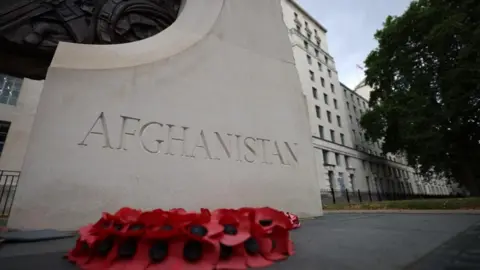The recent data breach concerning Afghan evacuees has raised significant concerns about security, moral responsibility, and the integrity of UK government operations. The breach, which involved the inadvertent leaking of sensitive information, such as names and contact details of individuals seeking safety from Taliban reprisals, has led to an unprecedented evacuation operation. This incident, which has unfolded over the past three years, poses critical questions for Britain’s security establishment as further details emerge.
The topic of data leaks isn’t new; history is rife with examples from platforms like WikiLeaks and high-profile cases like Edward Snowden’s disclosures to numerous corporate cyber-attacks that proliferate daily. What distinguishes the current leak is its potential life-threatening implications for many Afghans. As reported, the leak sent shivers down the spines of numerous Afghan nationals and their families, who now live in fear of Taliban retribution. Those already evacuated to the UK likely face permanent exile as long as the Taliban remain in power. Alarmingly, there are still about 600 former Afghan soldiers and their dependents firmly in Afghanistan, awaiting the government’s pledge to provide them safety, and who until that promise is fulfilled, continue to carry the heavy burden of uncertainty.
The leak arose not from a premeditated attack orchestrated by sophisticated cybercriminals, but rather from an unintentional error made by an individual from the Ministry of Defence. The implications of such an oversight evoke serious concerns regarding the protocols in place to safeguard sensitive data. It underscores an urgent need for stringent measures to prevent similar breaches in the future, highlighting the broader scrutiny around data security and management practices, not only for governmental organizations but across all sectors.
The moral obligation of the UK regarding the Afghan nationals who aided British forces during their two-decade presence in Afghanistan is an equally significant issue. UK forces were deployed in coalition with the US and NATO allies from October 2001 until August 2021, relying predominantly on the local knowledge and expertise of Afghans. Many individuals took great personal risk to assist the British efforts, spurred on by a belief that they were contributing to a fortified and progressive Afghanistan. The potential impact of the breach raises critical questions about trust and commitment, particularly for those who placed their faith in the UK’s declarations of safety regarding their information.
Moreover, the measures taken to conceal the breach raise issues of transparency and accountability within the UK government. Following the breach’s discovery approximately 18 months later, the government sought a super-injunction, effectively preventing media coverage and public discourse around the incident. Super-injunctions are extraordinarily stringent legal measures, rendering the situation entirely opaque and stifling standard checks that a functioning democracy should uphold. Upon its recent lifting by High Court Judge Mr. Justice Chamberlain, concerns surfaced that the super-injunction may have served political interests rather than solely protecting the lives of those affected. The judge highlighted the injunction’s role in “shutting down ordinary mechanisms of accountability,” thus insinuating a possible orchestration of secrecy for political expediency by the previous Conservative government.
The emergence of this data breach and the subsequent cover-up efforts prompt deeper analysis into not only the security measures but also the ethical and moral responsibilities that countries hold toward allies and informants, particularly in conflict zones. As the UK government grapples with the repercussions of this event, it must reassess its procedures and establish renewed trust with not only the impacted individuals but also the wider public. The crisis presents an opportunity for reflection on greater accountability, improved data security practices, and a reevaluation of commitments made to those who offered their trust in perilous situations, shaping future engagements in international relations.
It is imperative for the UK to address these pressing concerns transparently to restore faith, uphold justice for affected individuals, and ensure a robust framework is in place for safeguarding sensitive information in future operations. As the situation unfolds, the nation must confront its responsibilities towards those left behind and commit to resolving these critical questions that echo beyond the walls of government and into the lives of the individuals they pledged to protect.











